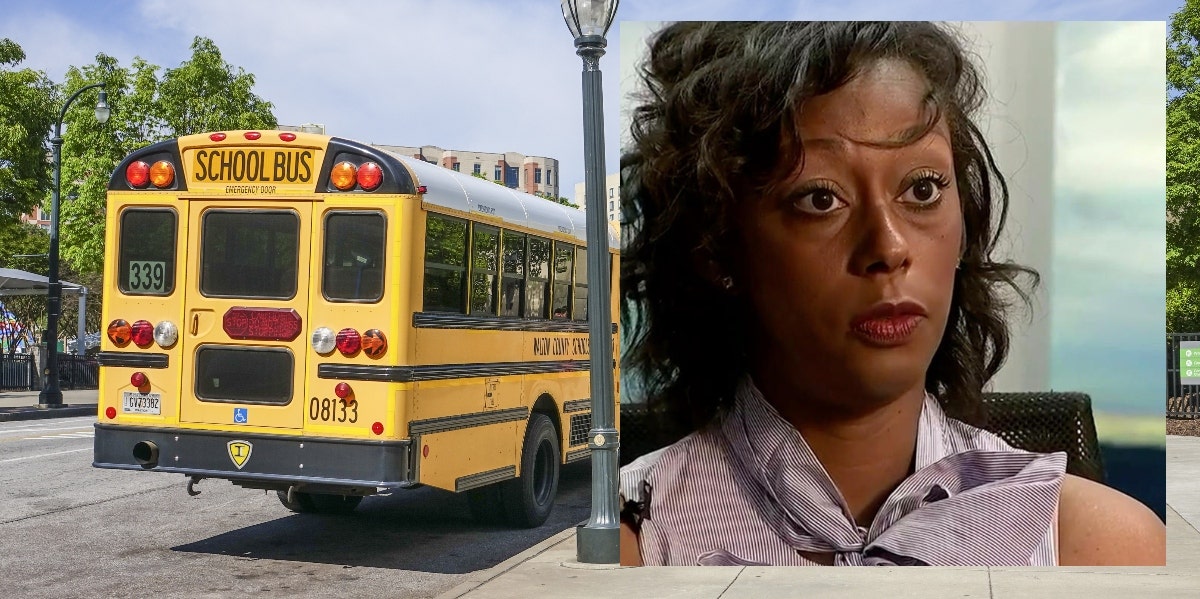Atlanta Mom Files Federal Complaint Against School, Says Principal Segregated Her Daughter Into A 'Black Class’
And says other Black students were segregated too.
 4kclips / Shutterstock / YouTube / WSBTV
4kclips / Shutterstock / YouTube / WSBTV An Atlanta mom has filed a federal complaint against her child’s elementary school alleging that Black students are being subject to racial segregation.
Kila Posey says her daughter, who is Black, was segregated into a class exclusively for Black children.
She claims that Principal Sharyn Briscoe of Mary Lin Elementary School, who is also Black, said her daughter could not be placed with the teacher Posey thought would be the best fit because the 12 Black students in second grade could only be placed in one of two out of the six classrooms available to other students.
Is racial segregation legal in Atlanta, Georgia?
In short, no.
In 1954, the US Supreme Court ruled in Brown v. Board of Education that segregation of students based on race is unconstitutional, meaning no state, including Georgia, may allow it in their public schools.
Atlanta Public Schools said they disagree with separating students based on race and issued a statement claiming action had been taken to address the matter.
"When we learned of allegations of this conduct occurring during virtual instruction at Mary Lin Elementary School in August 2020, the district conducted a review and took immediate and appropriate action at that time to resolve the issue."
It is unclear what this action is and it is also unknown how long or exactly how widespread the issues Posey outlines in her complaint have been taking place at the school.
Why did Atlanta Principal Sharyn Briscoe segregate Black students?
Posey says she learned about the racial separation last spring while discussing which teacher would be a good fit for her daughter.
When she suggested one teacher to Briscoe, the principal allegedly replied, “that is not a Black class.”
Briscoe claimed to be keeping Black students together to build a community, leaving them with only two options from the six available teachers to choose from.
"As a Black parent, what I'm hearing is my kid doesn't have the options of six teachers that may work with her learning style... I only get two [teachers]” Posey says, “How is that right? A white parent can get all six."
Mary Lin Elementary School officials allegedly admitted prior segregation had occurred.
Posey, whose husband works at the school, secretly recorded two conversations — one with an assistant principal and another with a district administrator — which were included in her complaint.
According to the complaint, the assistant principal "admitted that she was aware Ms. Briscoe had developed a second grade class roster based upon, in part, the race of the students."
And the administrator allegedly agreed that Briscoe "had indeed designated classes for Black students."
Posey’s attorney says the complaint — which was filed last month — argues that the principal and the school violated Title VI of the Civil Rights Act of 1964, which bars discrimination, exclusion and benefits on the basis of race, color or national origin in programs that receive federal assistance.
School segregation has a dark but not-so-distant past.
Racial segregation in schools has a dark and painful history in the US.
Though Brown v. Board of Education overturned the practice of racial segregation in public schools, many school districts were slow to comply.
In fact, as recently as 2016, a school district in Mississippi was ordered to desegregate.
Though Briscoe may have had good intentions, hoping to encourage camaraderie between Black students, her efforts harken back to this bleak history.
If Posey’s allegations are true, Briscoe may have been denying Black students opportunities to mix with, and receive the same educational opportunities as, their white peers.
The measure also risks fostering ideas of difference and inequality between races.
Alice Kelly is a senior news and entertainment editor for YourTango. Based out of Brooklyn, New York, her work covers all things social justice, pop culture, and human interest. Keep up with her Twitter for more.

